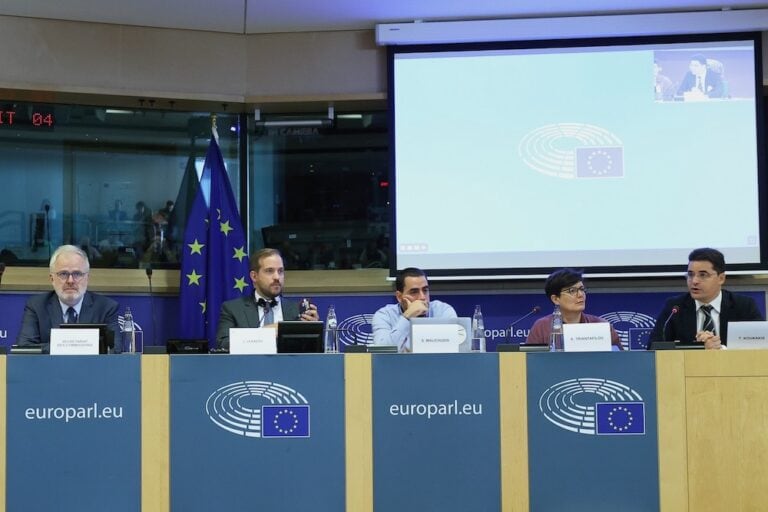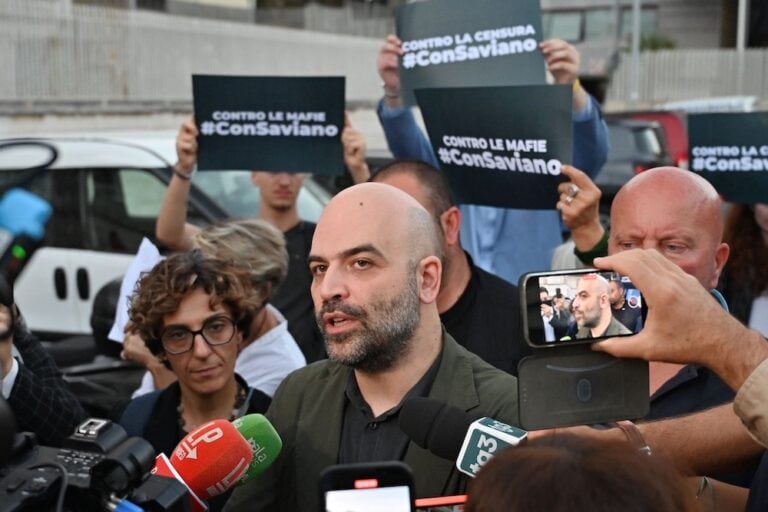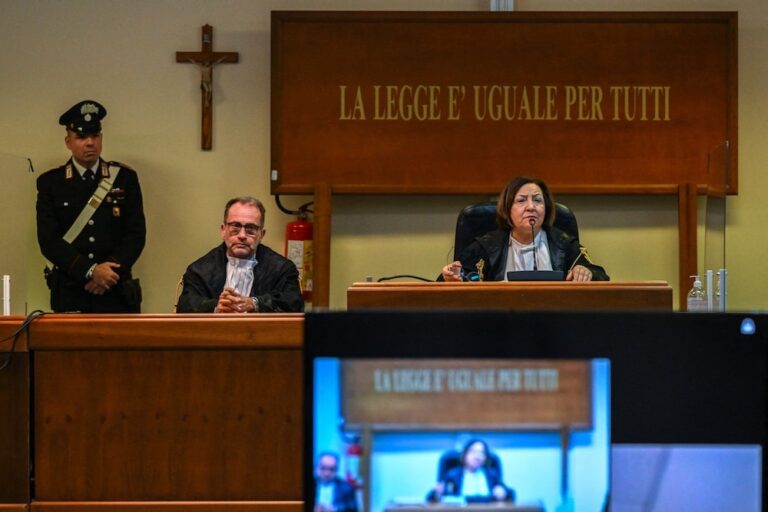Italian media outlets have united to decry this latest assault on media freedom.
(IPI/IFEX) – Vienna, Thursday, 27 May 2010 – A draft law, due to go before Italy’s full upper house of parliament next week, banning the media from reporting on criminal investigations before they come to trial – which can take years – has united Italian journalists in anger at what they have branded an attack on press freedom and democracy.
The draft bill – known as the “Alfano Draft Law” – foresees a penalty of up to 464,700 Euros for publishers and up to 20,000 Euros for journalists who flout the ban. Furthermore, the draft bill foresees prison sentences for anyone who records or films without the approval of the person who is being recorded or filmed. Only “professional journalists” (i.e. journalists belonging to the Italian National Order of Journalists) would be allowed to record and film individuals without previous authorization, solely for journalistic purposes.
IPI has often criticized the practice of restricting the right to report to members of official journalist associations.
The bill also forbids wiretaps unless investigators can prove that a crime has been, or is being, committed. Judges have warned that this will embolden the Mafia, and critics have suggested the move has more to do with the desire of politicians to avoid embarrassing allegations about their private lives than with the stated intent to protect ordinary citizens’ privacy.
The bill had been making the rounds of parliament for months, but things speeded up dramatically after newspapers ran leaked transcripts from a graft investigation into public works contracts that has cast a shadow over Prime Minister Berlusconi’s government, according to news reports. As a result of the inquiry, Industry Minister Claudio Scajola had to resign after media published evidence that his luxury Rome apartment had been partly paid for by a businessman jailed for corruption.
On 25 May, the draft law was approved by the Justice Commission of the Italian Senate.
“It is shocking and disturbing that in a democratic country such as Italy the government is proposing a law that is a blatant slap in the face to free journalism and the public’s right to know,” said IPI Director David Dadge. “We urge the Italian parliament to reject the bill and to reassure the many concerned observers of this process that Italy remains committed to the fundamental democratic pillar of a free press.”
In a 24 May meeting organized by the National Federation of the Italian Press (Federazione Nazionale della Stampa Italiana – FNSI), Italy’s major media executives – from newspapers, news agencies and television stations – issued the following joint statement condemning the draft law:
“The directors and editors of Italian newspapers, with the National Federation of the Italian Press, denounce the threat represented by the draft wiretaps bill for free and full information. This draft bill penalizes and nullifies the right to report, preventing newspapers and news shows (including new media) from reporting about investigations and prosecutions – including those involving serious crime – until the preliminary hearing, i.e. for a period which in Italy varies between three and six years, in some cases extending to 10 years. The proposed rules violate the fundamental right of citizens to know and be informed.
“It is an inalienable vital right, on which the proper functioning of the democratic circuit depends and to which – quite simply – the newspapers’ duty to inform corresponds.
“The law currently in front of the Senate damages the fundamental principles upon which freedom of information is guaranteed and justice is administered in the name of the people. Journalists perform a function, a duty that cannot be restricted by acts of censorship. We will fulfill this duty, regardless of fines, arrests and sanctions. But in the meantime let’s stop this law, because democracy and information in Italy do not tolerate any gag.”


